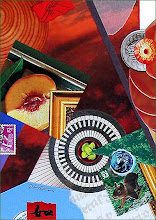ok, so there are lists of famous procrastinators........and this is the first person who overlapped with my leftie list......
Leonardo da Vinci
Leonardo da Vinci was a man of incredible talent. He explored almost every field available to him, in both science and art. He made significant contributions in engineering, architecture, biology, botany, anatomy, math, and physics. He sculpted, painted, both portrait and mural (e.g., The Last Supper) and made plans for ingenious machines that wouldn't be built for centuries (e.g., planes, submarines). He also never finished a project on time.
Part of what made Leonardo such a "Renaissance Man" was that he was distractible as he was talented. Jacob Bronowski, the scientific historian, speaks about his procrastination. His talents and energy were often wasted in doodles and unfinished projects. The Last Supper was only finished after his patron threatened to cut off all funds. Mona Lisa took twenty years to complete. The Adoration of the Magi, an early painting, was never finished and his equestrian projects were never built.
His procrastination caused him much grief in later years. Despite his varied contributions, he felt he could have achieved much more. Given his talents, it is without doubt that more of his aspirations could have become a reality in his own time. So much was half-completed that he appealed to God, “Tell me if anything ever was done. Tell me if anything was done.”
The cause of Leonardo's procrastination appears to be distractibility. Today, we might even characterize Leonardo as suffering from Attention Deficit Disorder. Being unable to focus on one project until completion is highly predictive of procrastination. His distractibility, jumping from topic to topic, allowed him to contribute in a wide variety of fields. However, it is doubtful whether such as strategy could create more than a dilettante today, even with Leonardo's ability (i.e., he was said to be able to paint with one hand and write with the other, simultaneously). Thanks to efforts over the last few hundred years, including da Vinci's of course, contributing new knowledge often requires many months of continued focus.
Subscribe to:
Post Comments (Atom)

No comments:
Post a Comment